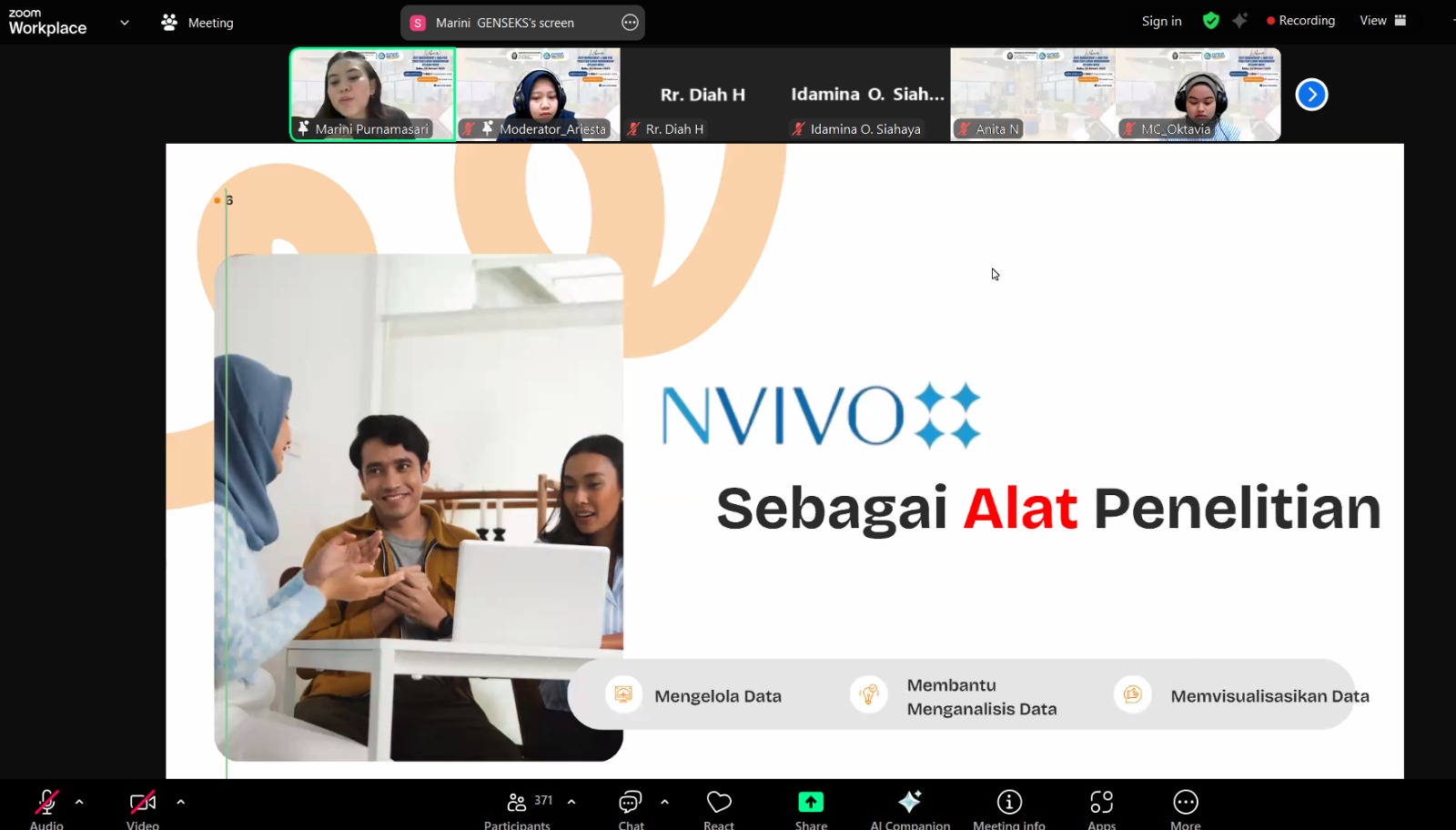Semarang, January 22, 2025 – UPT Library and UNDIP Press organized the 60th Webinar Series with the theme “Data Management & Analysis: Scientific Research Using NVivo.” This event aimed to provide insights to Universitas Diponegoro’s academic community and the general public on optimizing NVivo as a tool for qualitative data analysis in research.
Held virtually via Zoom, the webinar featured Marini Purnamasari, S.Sos., a Junior Researcher from the Gender and Sexuality Studies Unit of FISIP UI, as the keynote speaker. Marini brought her extensive experience in qualitative data-based research to the session. The event was moderated by Ariesta Nuur F., S.Hum., a librarian at UPT Library and UNDIP Press.
The webinar attracted 400 participants, offering them in-depth knowledge about managing and analyzing qualitative data using NVivo. As a sophisticated software application, NVivo is designed to streamline qualitative data analysis, allowing researchers to enhance efficiency and gain deeper insights—making it a valuable tool for producing high-quality academic work.
In his opening remarks, Suwondo, S.Hum., M.Kom., Head of UPT Library & UNDIP Press, stated that the 60th webinar series at the start of 2025 was an opportunity to learn about NVivo together. He expressed hope that the event would make a significant contribution to improving research quality and fostering a productive academic tradition.
“UPT Library aims to present future webinar series in 2025 on innovative research topics to enhance understanding of data processing and its application to produce high-quality research reports,” said Suwondo.
During her presentation, Marini emphasized the importance of data management in research. She highlighted that effective data management not only supports research validity but also enhances transparency and facilitates the replication of research findings. She echoed Borgman’s (2015) statement that “Data are the foundation of knowledge.”
The session outlined several strategic steps in analyzing qualitative data:
1. Research Problem/Objective Formulation
Establishing research focus based on the phenomenon being studied to guide the research direction and objectives.
2. Conceptual Framework
Developing a theoretical framework to connect relevant concepts and guide the study.
3. Coding Process
Analyzing data by identifying themes or categories to uncover the meanings within the data.
Marini further elaborated on the benefits of using NVivo in qualitative research, which include a more structured data analysis process with clear step-by-step guidance; reduced risk of losing important information through automation features; efficient identification of relevant information; time savings in the analysis process; enhanced team collaboration through data-sharing features; improved transparency and documentation of the analysis process; and facilitated data visualization through tools like mind mapping and concept mapping.
The webinar was expected to inspire researchers and academics to leverage technology like NVivo to boost research productivity. The insights gained through the Q&A session were also anticipated to enrich participants’ understanding of more effective and efficient data management. (DHW)











